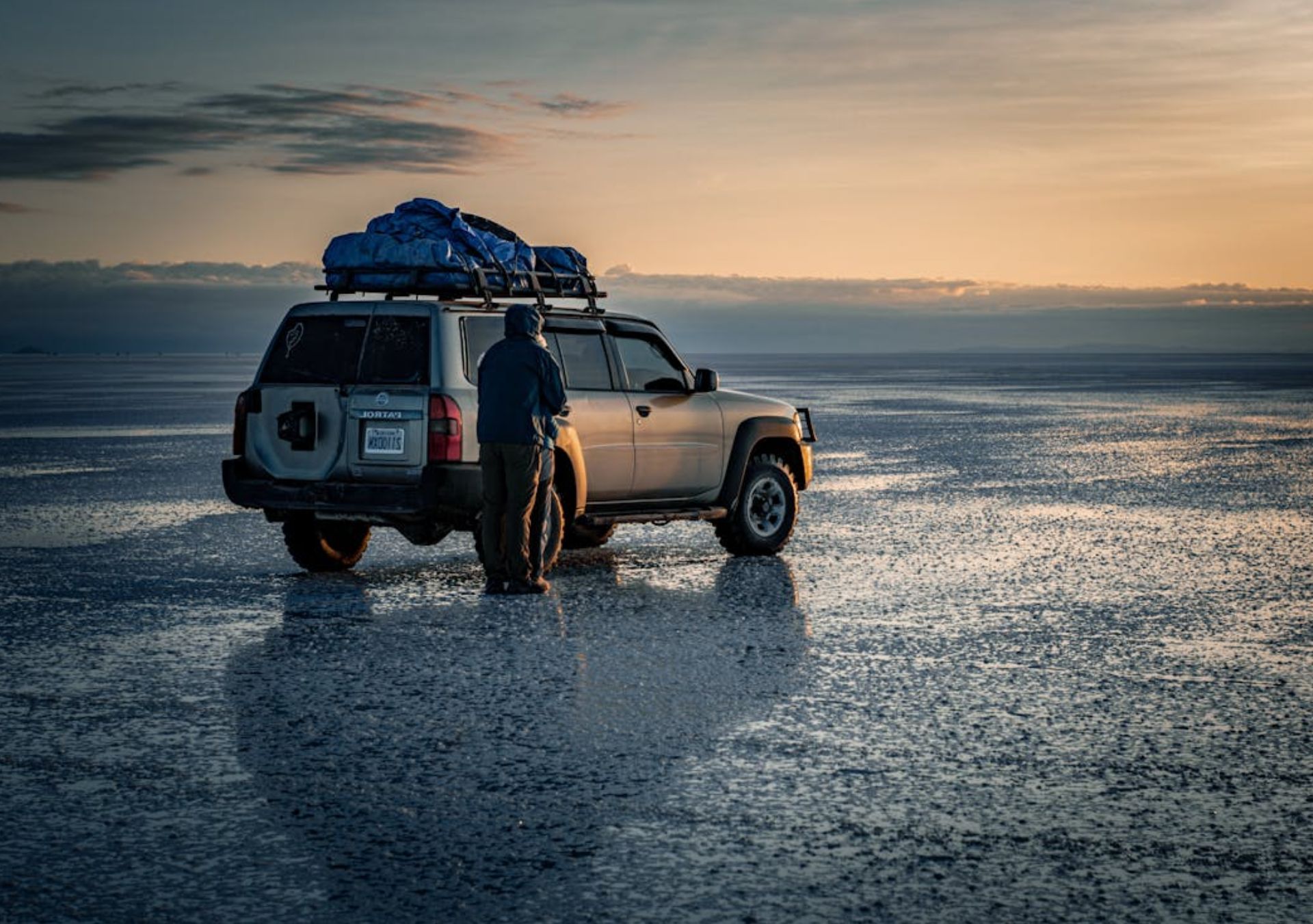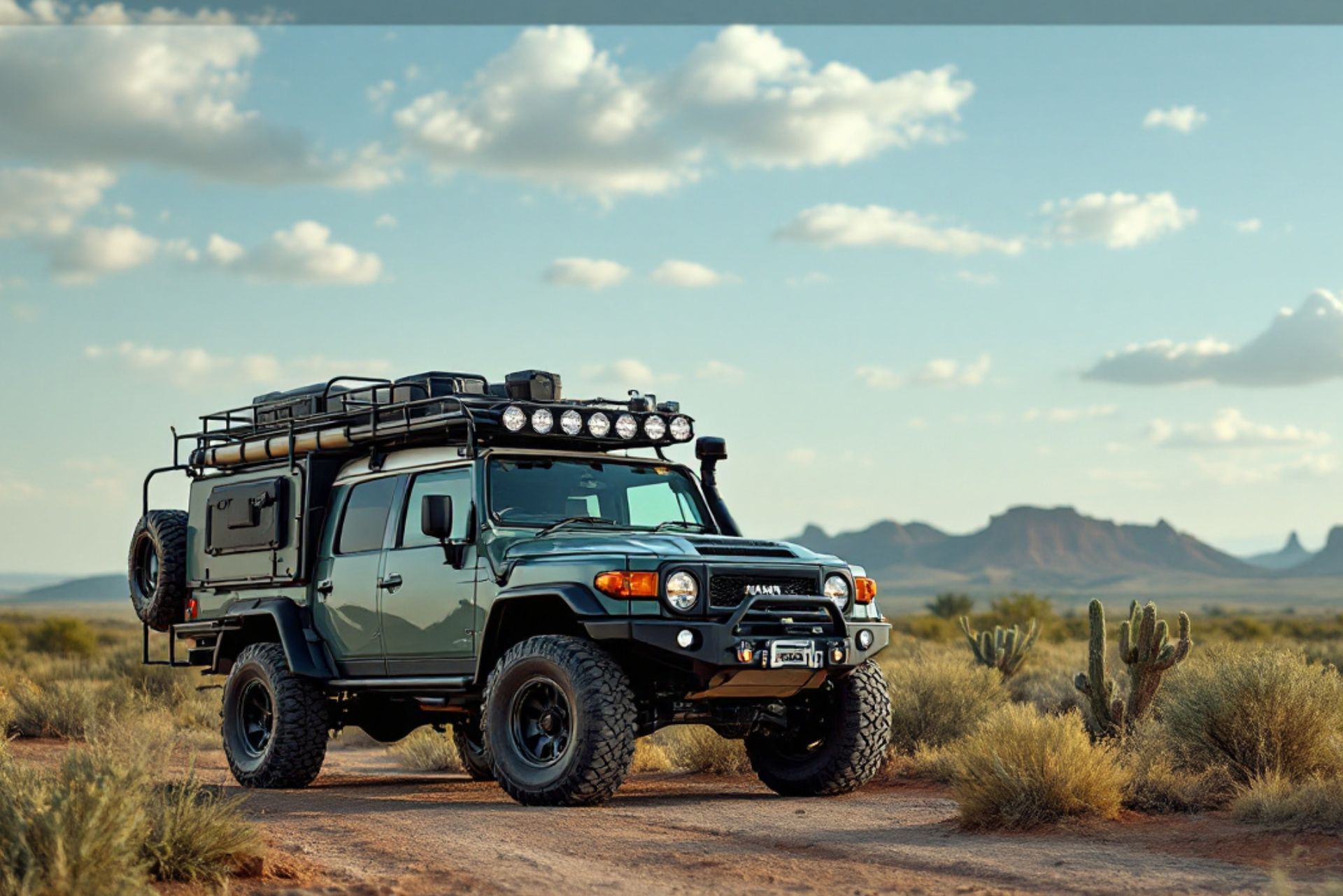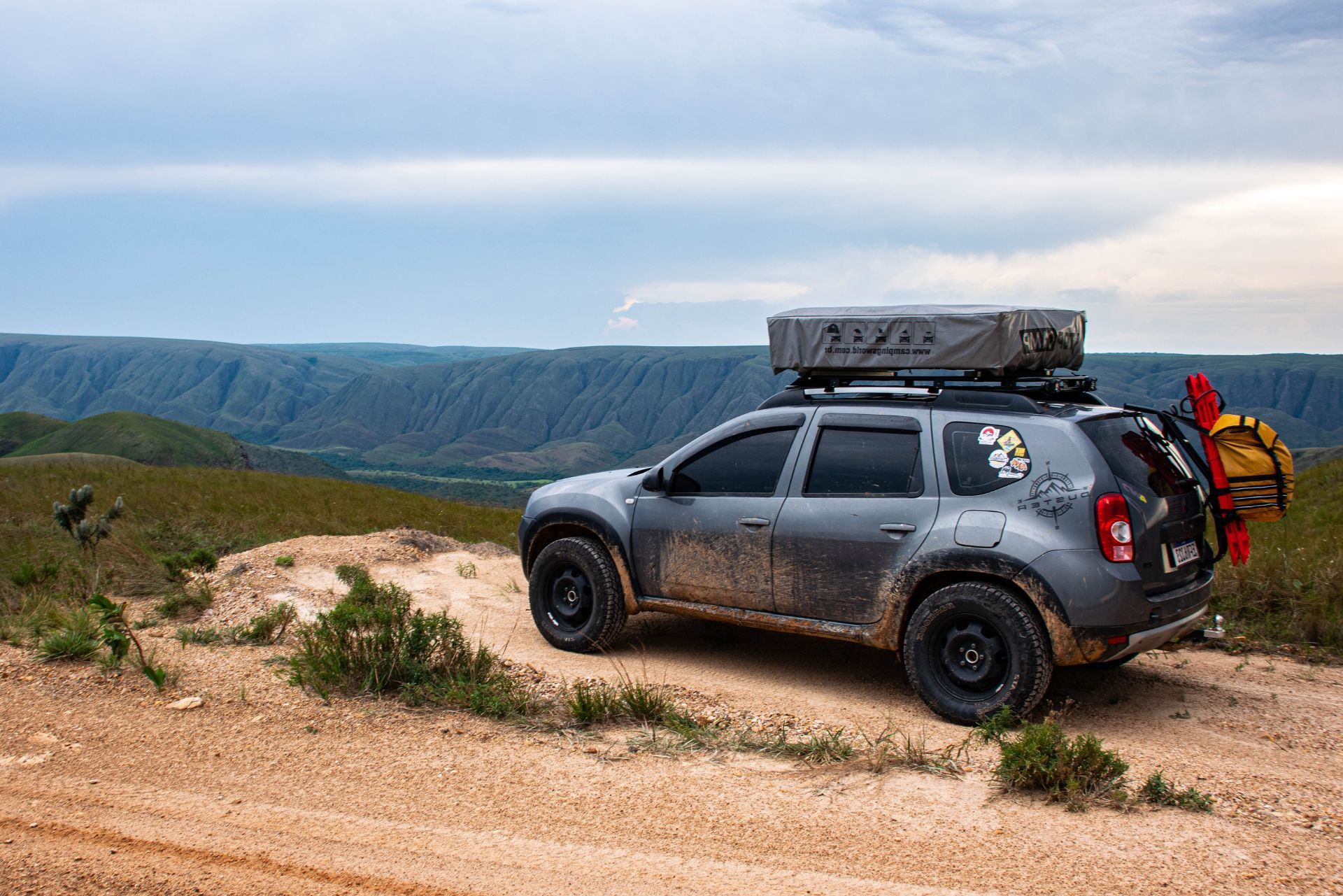
Most Common Personal Policies
Index
Understanding Overland Rig Auto Insurance
Texas Auto Insurance Laws and Regulations
Choosing the Right Overland Rig Auto Insurance in Texas
Filing an Overland Rig Auto Insurance Claim in Texas
Tips to Save on Overland Rig Auto Insurance in Texas
Frequently Asked Questions about Overland Rig Auto Insurance
Contact Us
Texas offers a unique environment for adventure seekers and outdoor enthusiasts, particularly those who engage in overlanding. As the popularity of off-road travel grows, so does the need for specialized auto insurance tailored to overland rigs. This comprehensive guide will help you understand overland rig auto insurance, the regulations in Texas, how to choose the right policy, filing claims, saving tips, and answer frequently asked questions.
Understanding Overland Rig Auto Insurance
What is Overland Rig Auto Insurance?
Overland rig auto insurance is a specialized form of insurance designed to protect vehicles used for extended outdoor journeys, including camping, off-roading, and wilderness exploration. Unlike standard auto insurance policies, this type of coverage accounts for the unique risks associated with overland travel, such as off-road driving, equipment theft, and vehicle modifications.
Overland rigs can include SUVs, trucks, and vans that have been modified with additional features such as roof racks, off-road tires, winches, and more. These vehicles are often equipped to handle rugged terrains and carry specialized gear, making them vulnerable to specific risks that standard auto insurance may not cover adequately. Additionally, overland rigs often serve as mobile homes for adventurers, equipped with amenities like sleeping quarters, cooking facilities, and storage for outdoor gear, further complicating their insurance needs.
Importance of Overland Rig Auto Insurance
Having overland rig auto insurance is vital for several reasons. Firstly, it provides financial protection against potential damages or losses incurred while traversing remote areas. Given that overlanding often involves exposure to unpredictable weather conditions and rough terrains, having a specialized policy ensures that you are covered for these additional risks.
Furthermore, certain incidents, such as breakdowns or accidents, can occur far away from urban centers, leading to expensive recovery and repair costs. Overland rig auto insurance typically includes roadside assistance and coverage for recovery, making it an essential asset for those looking to explore the great outdoors responsibly. Moreover, many policies offer coverage for personal belongings stored within the vehicle, which can be invaluable if you are carrying high-value camping gear or outdoor equipment. This added layer of protection allows adventurers to focus on their journeys without the constant worry of financial loss from theft or damage to their essential gear.
Additionally, overland rig auto insurance can also provide liability coverage, which is crucial when traveling through areas where accidents may impact not only your vehicle but also others. This is particularly important in remote locations where emergency services may be limited, and the consequences of an incident can be more severe. By having comprehensive liability coverage, you can ensure that you are protected against potential lawsuits or claims that may arise from accidents, allowing you to enjoy your adventures with peace of mind.

Texas Auto Insurance Laws and Regulations
Mandatory Insurance Requirements in Texas
In Texas, all drivers must adhere to specific auto insurance laws to operate legally. The state mandates that drivers carry at least minimum liability insurance, which includes coverage for bodily injury and property damage. For overland rig owners, this means ensuring your policy meets or exceeds these minimum requirements to avoid potential legal issues.
For 2023, the minimum requirements are:
- $30,000 for bodily injury per person
- $60,000 for total bodily injury when multiple people are injured
- $25,000 for property damage
While these figures represent the baseline for auto insurance in Texas, overland rig owners should consider higher coverage limits or additional protection to account for the assets involved in overlanding. Overlanding often involves traveling through remote areas where access to immediate help can be limited, making comprehensive coverage essential. Not only does this provide peace of mind, but it also ensures that you are financially protected against unforeseen circumstances, such as accidents or natural disasters that could damage your vehicle or equipment.
Penalties for Non-Compliance
Failing to maintain the required auto insurance can lead to severe consequences in Texas. If caught driving without insurance, you may face hefty fines, license suspension, and even vehicle impoundment. The state also imposes surcharges and penalties for repeat offenders, which can significantly impact your financial future.
In addition to legal repercussions, being uninsured can leave you vulnerable to out-of-pocket costs associated with accidents or damages incurred while overlanding. The financial burden of medical bills, vehicle repairs, or liability claims can quickly escalate, especially in the event of a serious accident. Furthermore, if you are involved in an accident without insurance, you may also face civil lawsuits from other parties, which can lead to long-term financial difficulties. Therefore, finding the right coverage is crucial for both compliance and protection.
Moreover, Texas law allows for the possibility of obtaining a
Certificate of Financial Responsibility (CFR) as an alternative to traditional insurance. This option can be beneficial for those who may not qualify for standard insurance policies. However, it typically requires a higher financial commitment, such as a cash deposit or a surety bond, and may not provide the same level of comprehensive coverage as a standard auto insurance policy. As such, it's essential for drivers to carefully evaluate their options and choose a plan that best suits their needs, particularly for those engaged in the adventurous lifestyle of overlanding.
Choosing the Right Overland Rig Auto Insurance in Texas
Factors to Consider When Choosing an Insurance Policy
When selecting an insurance policy for your overland rig, several factors should be considered. Key aspects include the type of coverage needed, the extent of your overlanding activities, and your budget for insurance premiums.
One essential factor is the level of coverage. Depending on the risks associated with your travels, you may want to consider comprehensive and collision coverage in addition to liability insurance. Policies that provide protection for personal belongings or specific modifications to your vehicle can also be beneficial. Additionally, consider whether the policy covers off-road incidents, as many overlanders venture into remote areas where traditional insurance may not apply. Understanding the nuances of your policy can help ensure that you are adequately protected against potential hazards, such as wildlife encounters or natural disasters.
Another important consideration is the reputation and reliability of the insurance provider. Researching customer reviews and ratings can give you insight into how well the company handles claims and customer service. Some insurers specialize in overland and adventure vehicle insurance, offering tailored policies that cater specifically to the unique needs of overlanders. This specialization can provide peace of mind, knowing that your insurer understands the challenges and risks associated with off-road travel.
Understanding Insurance Premiums and Deductibles
Insurance premiums for overland rig auto insurance can vary widely based on several factors, including the make and model of your vehicle, your driving history, and the extent of coverage you choose. Typically, overland rigs may attract higher premiums due to their risk profile. To mitigate costs, it’s essential to understand your deductible options, which is the amount you'll pay out of pocket before your insurance kicks in.
Choosing a higher deductible can lower your premium but may not be ideal if you anticipate making frequent claims. It’s crucial to strike a balance that aligns with your financial situation and risk tolerance. Additionally, consider any discounts that may be available, such as multi-policy discounts if you bundle your auto insurance with home or other types of insurance. Some insurers also offer discounts for safe driving records or for taking defensive driving courses, which can further reduce your overall costs. Understanding all available options can empower you to make a more informed decision about your insurance policy.
Filing an Overland Rig Auto Insurance Claim in Texas
Steps to File an Insurance Claim
Filing an insurance claim for your overland rig involves several straightforward steps. Firstly, ensure that your safety and the safety of others is prioritized—seek medical assistance if necessary. In the aftermath of an accident, it’s crucial to remain calm and composed. This not only helps you think clearly but also allows you to better assess the situation and gather the necessary information without feeling overwhelmed.
Next, gather relevant information, including police reports, photos of the incident, and details of any other parties involved. Documenting the scene thoroughly can significantly impact the outcome of your claim. Consider taking pictures from various angles, capturing any damage to your rig as well as the surrounding area. After compiling necessary documentation, reach out to your insurance provider to begin the claims process. Most companies offer a straightforward way to file claims online or through their app, making it easier to initiate the process without unnecessary delays.
Dealing with Insurance Adjusters
Upon filing your claim, an insurance adjuster will generally be assigned to assess the damage and determine coverage eligibility. It’s essential to cooperate with the adjuster while ensuring you have clear documentation of your claim. Be cautious about accepting initial offers without fully understanding your expenses, as adjusters may aim to minimize the payout. Remember, the adjuster’s role is to evaluate the claim from the insurance company's perspective, so having all your information organized and ready can help you advocate for yourself effectively.
Ensure you clarify the extent of coverage and ask any questions you may have. Understanding your policy details is vital, as it can help you navigate the claims process more confidently. You have the right to appeal their decision if you feel the settlement is inadequate. If you find yourself in a dispute, consider seeking advice from a legal professional who specializes in insurance claims. They can provide guidance on how to approach negotiations and ensure that your rights are protected throughout the process.

Tips to Save on Overland Rig Auto Insurance in Texas
Discounts and Deals on Auto Insurance
Many insurance providers offer a variety of discounts that can help you save on your overland rig auto insurance. Common discounts include those for bundling policies, having a good driving record, completing defensive driving courses, and establishing long-term loyalty with a provider.
Additionally, inquire about specialized discounts for overland enthusiasts. Some companies may offer reductions for vehicles equipped with safety features or that are stored securely when not in use. Furthermore, certain insurers might provide discounts for members of overland clubs or organizations, recognizing the community's commitment to responsible driving and vehicle maintenance. It’s worth exploring these options, as they can significantly lower your premiums while also enhancing your coverage.
Maintaining a Good Driving Record
One of the most significant factors affecting your insurance premium is your driving history. Maintaining a good driving record free from accidents or violations is crucial for keeping your insurance costs down.
Promoting safe driving behaviors and adhering to traffic regulations not only helps you save on insurance but also ensures your overall safety as you embark on your overland adventures. Regularly reviewing your driving habits can be beneficial; consider using apps that track your driving performance, providing insights into areas for improvement. Additionally, being aware of seasonal driving conditions in Texas, such as heavy rains or fog, can help you adjust your driving style accordingly, further reducing the risk of incidents. This proactive approach not only aids in maintaining a clean record but also contributes to a more enjoyable and secure overland experience.
Frequently Asked Questions about Overland Rig Auto Insurance
Can I Drive without Auto Insurance in Texas?
No, driving without auto insurance in Texas is illegal and can lead to significant penalties, including fines and potential legal action. It is always advisable to carry insurance coverage to protect yourself, your passengers, and your assets. In fact, Texas law mandates that drivers maintain a minimum level of liability coverage, which includes $30,000 for injury or death to one person, $60,000 for injury or death to multiple people, and $25,000 for property damage. Failing to comply with these requirements can result in serious consequences, such as the suspension of your driver's license and vehicle registration.
What Does Overland Rig Auto Insurance Cover?
Overland rig auto insurance typically covers a range of incidents, including accidents, theft, vandalism, and damages incurred during off-road activities. However, it’s essential to read through your policy to understand the specific coverages included and any exclusions that may apply. Coverage can vary significantly between providers, so it’s crucial to compare different policies to find one that suits your specific needs and lifestyle. Some policies may even offer specialized coverage for modifications made to your rig, such as upgraded suspension systems or custom-built storage solutions.
Protection for personal belongings, equipment coverage, and roadside assistance are also valuable add-ons worth considering when customizing an overland rig insurance policy. For instance, if you frequently travel to remote locations, having roadside assistance can be a lifesaver, providing services like towing, tire changes, and fuel delivery. Additionally, many overlanders carry expensive gear, such as camping equipment, electronics, and outdoor gear, which can also be covered under your policy. Ensuring that your insurance includes coverage for these items can provide peace of mind, knowing that you are protected against theft or damage while on your adventures.
This guide serves as a valuable resource for anyone exploring Texas's uncharted territories in their overland rig. By understanding your insurance options, you can protect your investment while enjoying your adventures with peace of mind. Furthermore, being knowledgeable about your insurance can help you navigate any claims process more efficiently, should the need arise. Familiarizing yourself with the claims procedure and keeping an organized record of your trips, including photographs and receipts for gear, can streamline the process and ensure you receive the coverage you deserve in case of an incident.


